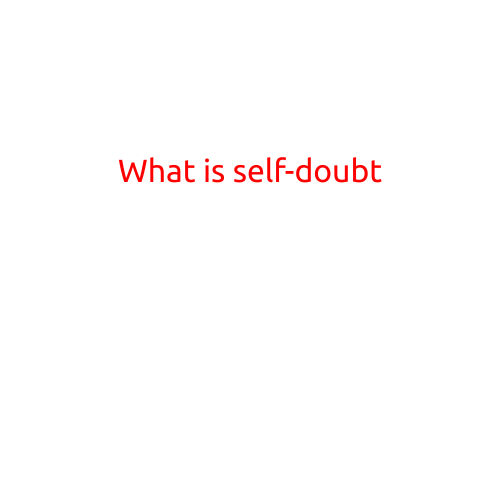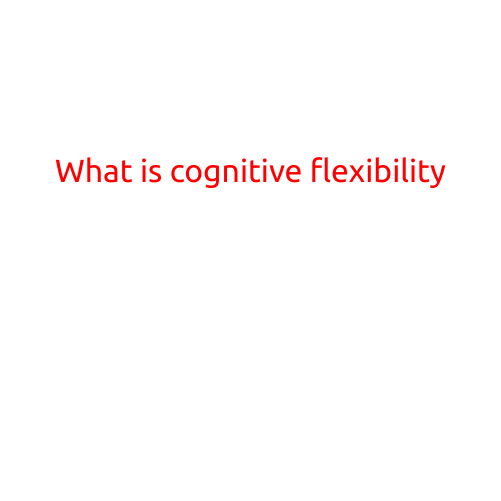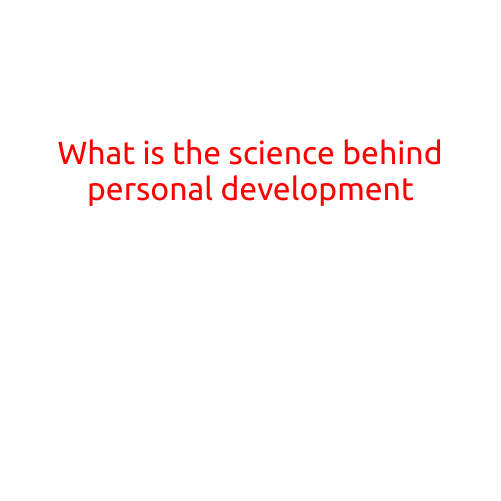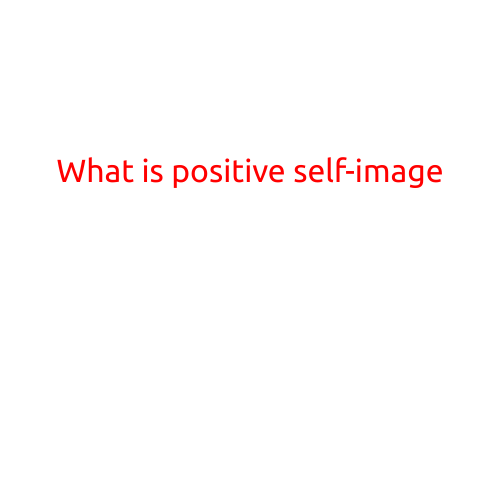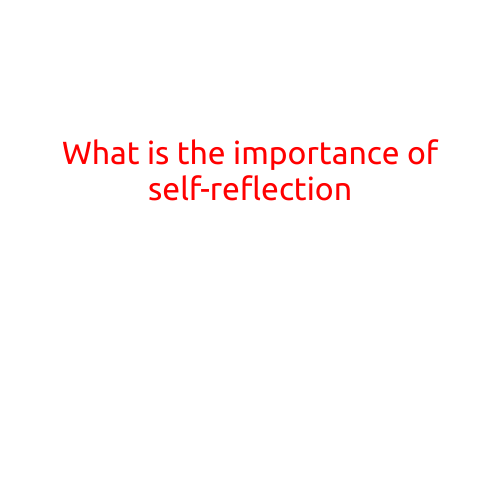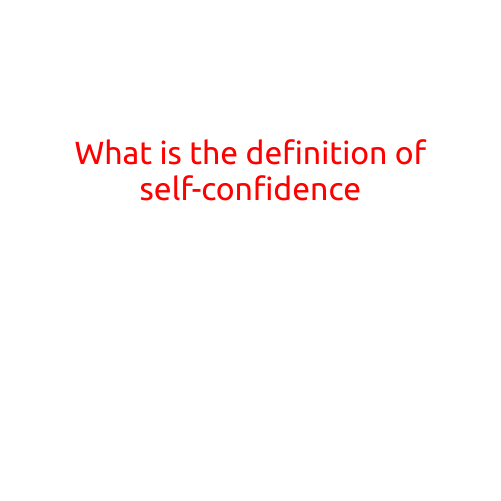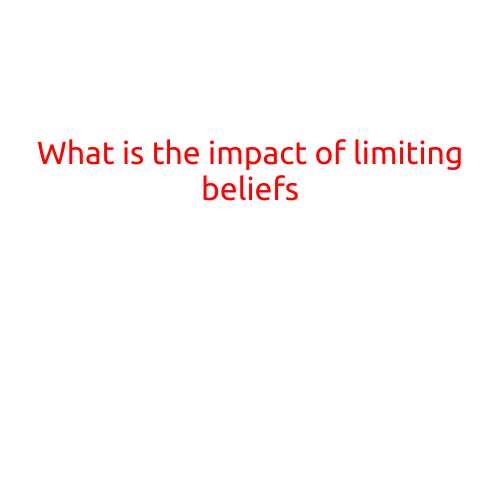
What is the Impact of Limiting Beliefs?
Limiting beliefs are thoughts, attitudes, or perspectives that restrict our potential, hinder our growth, and influence our actions and decisions. These beliefs can be deeply ingrained and often go unnoticed, yet they can have a profound impact on our lives. In this article, we’ll explore the effects of limiting beliefs and how they can shape our experiences, behaviors, and achievements.
Restricting Our Potential
Limiting beliefs can limit our potential in various areas of life, including our careers, relationships, and personal growth. When we believe that we’re not good enough, talented enough, or smart enough, we may hesitate to take risks, pursue opportunities, or even try new things. This can lead to a sense of mediocrity, stagnation, and frustration.
For example, someone who believes they’re not competitive enough may shy away from applying for a promotion or starting their own business. Similarly, an individual who believes they’re not intelligent enough may struggle in their academic pursuits or avoid seeking out new knowledge.
Creating Self-Doubt and Anxiety
Limiting beliefs can also create self-doubt and anxiety. When we believe that we’re not capable of achieving our goals or succeeding in certain situations, we may become overly critical of ourselves, second-guessing our abilities and questioning our worth. This can lead to feelings of inadequacy, nervousness, and overall anxiety.
For instance, someone who believes they’re not good enough at public speaking may become anxious when speaking in front of a group, leading to avoidance or hesitation. This, in turn, can limit their opportunities for growth, learning, and personal development.
Influencing Interpersonal Relationships
Limiting beliefs can also impact our interpersonal relationships. When we believe that others are superior or more capable, we may feel inferior, intimidated, or insecure. This can lead to difficulties in forming and maintaining meaningful connections with others.
For example, someone who believes they’re not as talented or successful as their peers may feel like an outsider, struggling to find common ground or build lasting relationships.
Preventing Personal Growth and Change
Finally, limiting beliefs can prevent personal growth and change. When we’re fixated on our perceived shortcomings or limitations, we may miss out on opportunities to learn, adapt, and evolve. This can result in stagnation, complacency, and a sense of being stuck.
For instance, someone who believes they’re not strong enough to overcome past traumas may struggle to move forward, stuck in a cycle of self-pity and self-doubt.
Breaking Free from Limiting Beliefs
So, how can we break free from the chains of limiting beliefs? Here are a few strategies to consider:
- Awareness: Recognize and acknowledge your limiting beliefs. Identify the sources of these beliefs and challenge them.
- Self-Reflection: Reflect on your values, strengths, and accomplishments. Celebrate your successes and focus on your positive qualities.
- Reframing: Reframe negative thought patterns into positive, empowering ones. Replace “I’m not good enough” with “I’m capable and deserving of success.”
- Practice Positivity: Surround yourself with positive influences, affirmations, and role models. Embrace a growth mindset and focus on learning from failures.
- Seek Support: Share your limitations with a trusted friend, family member, or mentor. Seek guidance and support from others who have overcome similar challenges.
Conclusion
Limiting beliefs can have a profound impact on our lives, restricting our potential, creating self-doubt and anxiety, influencing relationships, and preventing personal growth and change. By becoming aware of our limiting beliefs, reframing negative thought patterns, and seeking support, we can break free from these limitations and unlock our full potential. Remember, our beliefs shape our reality, so let’s choose beliefs that empower us to thrive!
